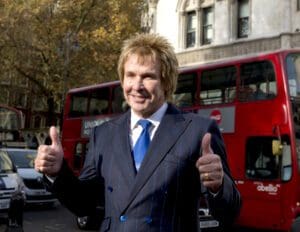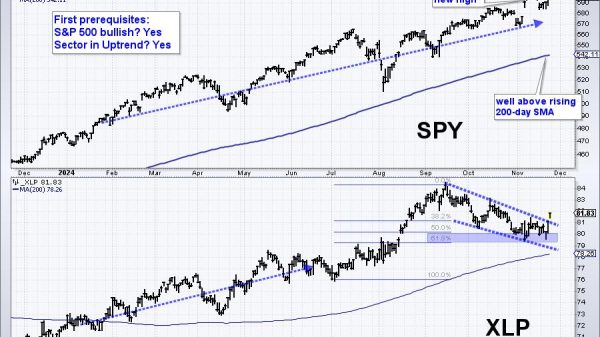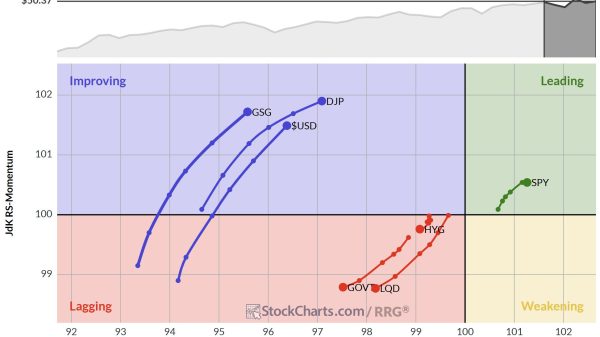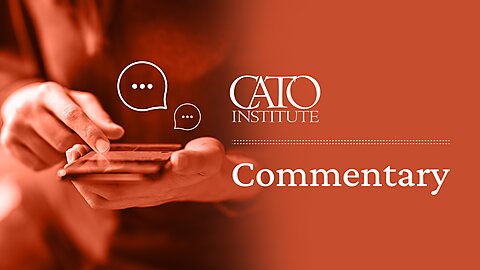The following is excerpted from Man, Economy, and State, with Power and Market, by Murray N. Rothbard (Mises Institute, 2004), pp. 1297–1327 (notes removed).
There are two types of ethical criticisms that can be made of the free-market system. One type is purely existential; that is, it rests on existential premises only. The other type advances conflicting ethical goals and protests that the free market does not attain these goals…
Number 1: Knowledge of Self-Interest: An Alleged Critical Assumption
This criticism of the market is more existential than ethical. It is the popular argument that laissez faire, or the free-market economy, rests its case on the crucial assumption that every individual knows his own self-interest best. Yet, it is charged, this is not true of many individuals. Therefore, the State must intervene, and the case for the free market is vitiated.
The free-market doctrine, however, does not rest on any such assumption. Like the mythical “economic man,” the Perfectly Wise Individual is a straw man created by the critics of the theory, not implied by it.
First, it should be evident from our analysis of the free market and government intervention throughout this work that any argument for the free market rests on a far deeper and more complex doctrine. We cannot enter here into the many ethical and philosophical arguments for freedom. Secondly, the laissez-faire or free-market doctrine does not assume that everyone always knows his own interest best; it asserts rather that everyone should have the right to be free to pursue his own interest as he deems best.
Critics may argue that the government should force men to lose some ex ante or present utility in order to gain ex post utility later, by being compelled to pursue their own best interests.
But libertarians may well reply in rebuttal: (1) that a person’s resentment at coercive interference will lower his ex post utility in any event; and (2) that the condition of freedom is a vital, necessary prerequisite for a person’s “best interests” to be attained. Indeed, the only lasting way to correct a person’s errors is by persuasive reasoning; force cannot do the job. As soon as the individual can evade this force, he will return to his own preferred ways.
No one, certainly, has perfect foresight into the uncertain future. But free entrepreneurs on the market are better equipped than anyone else, by incentive and by economic calculation, to foresee and satisfy the needs of the consumers.
But what if the consumers are mistaken with regard to their own interests? Obviously, they sometimes are. But several more points must be made. In the first place, every individual knows the data of his own inner self best—by the very fact that each has a separate mind and ego. Secondly, the individual, if in doubt about what his own true interests are, is free to hire and consult experts to give him advice based on their superior knowledge. The individual hires these experts and, on the market, can continuously test their helpfulness. Individuals on the market, in short, tend to patronize those experts whose advice proves most successful. Good doctors or lawyers reap rewards on the free market, while poor ones fail. But when government intervenes, the government expert acquires his revenue by compulsory levy. There is no market test of his success in teaching people their true interests. The only test is his success in acquiring the political support of the State’s machinery of coercion.
“What incentive does the government expert have to care about the interests of his subjects?”
Thus, the privately hired expert flourishes in proportion to his ability, whereas the government expert flourishes in proportion to his success in currying political favor. Moreover, what incentive does the government expert have to care about the interests of his subjects? Surely he is not especially endowed with superior qualities by virtue of his government post. He is no more virtuous than the private expert; indeed, he is inherently less capable and is more inclined to wield coercive force. But while the private expert has every pecuniary incentive to care about his clients or patients, the government expert has no incentive whatever. He obtains his revenue in any event. He is devoid of any incentive to worry about his subject’s true interests.
It is curious that people tend to regard government as a quasi-divine, selfless, Santa Claus organization. Government was constructed neither for ability nor for the exercise of loving care; government was built for the use of force and for necessarily demagogic appeals for votes. If individuals do not know their own interests in many cases, they are free to turn to private experts for guidance. It is absurd to say that they will be served better by a coercive, demagogic apparatus.
Finally, the proponents of government intervention are trapped in a fatal contradiction: they assume that individuals are not competent to run their own affairs or to hire experts to advise them. And yet they also assume that these same individuals are equipped to vote for these same experts at the ballot box. We have seen that, on the contrary, while most people have a direct idea and a direct test of their own personal interests on the market, they cannot understand the complex chains of praxeological and philosophical reasoning necessary for a choice of rulers or political policies. Yet this political sphere of open demagogy is precisely the only one where the mass of individuals are deemed to be competent!
Number 2: The Problem of Immoral Choices
Some writers are astute enough to realize that the market economy is simply a resultant of individual valuations, and thus they see that, if they do not like the results, the fault lies with the valuations, not the economic system. Yet they proceed to advocate government intervention to correct the immorality of individual choices. If people are immoral enough to choose whiskey rather than milk, cosmetics rather than educational matter, then the State, they say, should step in and correct these choices. Much of the rebuttal parallels the refutation of the knowledge-of-interests argument; i.e., it is self-contradictory to contend that people cannot be trusted to make moral decisions in their daily lives but can be trusted to vote for or accept leaders who are morally wiser than they.
Mises states, quite rightly, that anyone who advocates governmental dictation over one area of individual consumption must logically come to advocate complete totalitarian dictation over all choices. This follows if the dictators have any set of valuational principles whatever. Thus, if the members of the ruling group like Bach and hate Mozart, and they believe strongly that Mozartian music is immoral, they are just as right in prohibiting the playing of Mozart as they are in prohibiting drug use or liquor consumption. Many statists, however, would not balk at this conclusion and would be willing to take over this congenial task.
“If a man is not free to choose, if he is compelled by force to do the moral thing, then he is being deprived of the opportunity of being moral.”
The utilitarian position—that government dictation is bad because no rational ethics exists, and therefore no person has a right to impose his arbitrary values on someone else—is, we believe, an inadequate one. In the first place, it will not convince those who believe in a rational ethics, who believe that there is a scientific basis for moral judgments and that they are not pure whim. And furthermore, the position involves a hidden moral assumption of its own—that A has no right to impose any arbitrary values on B. But if ends are arbitrary, is not the end “that arbitrary whims not be imposed by coercion” just as arbitrary? And suppose, further, that ranking high on A’s value scale is the arbitrary whim of imposing his other values on B. Then the utilitarians cannot object and must abandon their attempt to defend individual liberty in a value-free manner. In fact, the utilitarians are helpless against the man who wants to impose his values by coercion and who persists in doing so even after the various economic consequences are pointed out to him.
The would-be dictator can be logically refuted in a completely different way, even while remaining within Wertfrei praxeological bounds. For what is the complaint of the would-be dictator against free individuals? That they act immorally in various ways. The dictator’s aim, therefore, is to advance morality and combat immorality. Let us grant, for the sake of argument, that an objective morality can be arrived at. The question that must be faced, then, is: Can force advance morality? Suppose we arrive at the demonstrable conclusion that actions A, B, and C are immoral, and actions X, Y, and Z are moral. And suppose we find that Mr. Jones shows a distressing propensity to value A, B, and C highly and adopts these courses of action time and again. We are interested in transforming Mr. Jones from being an immoral person to being a moral person. How can we go about it? The statists answer: by force. We must prohibit at gunpoint Mr. Jones from doing A, B, and C. Then, at last, he will be moral. But will he? Is Jones moral because he chooses X when he is forcibly deprived of the opportunity to choose A? When Smith is confined to a prison, is he being moral because he doesn’t spend his time in saloons getting drunk?
There is no sense to any concept of morality, regardless of the particular moral action one favors, if a man is not free to do the immoral as well as the moral thing. If a man is not free to choose, if he is compelled by force to do the moral thing, then, on the contrary, he is being deprived of the opportunity of being moral. He has not been permitted to weigh the alternatives, to arrive at his own conclusions, and to take his stand. If he is deprived of free choice, he is acting under the dictator’s will rather than his own. (Of course, he could choose to be shot, but this is hardly an intelligible conception of free choice of alternatives. In fact, he then has only one free choice: the hegemonic one—to be shot or to obey the dictator in all things.)
Dictatorship over consumers’ choices, then, can only atrophy morality rather than promote it. There is but one way that morality can spread from the enlightened to the unenlightened—and that is by rational persuasion. If A convinces B through the use of reason that his moral values are correct and B’s are wrong, then B will change and adopt the moral course of his own free will. To say that this method is a slower procedure is beside the point. The point is that morality can spread only through peaceful persuasion and that the use of force can only erode and impair morality.
We have not even mentioned other facts that strengthen our argument, such as the great difficulty in enforcing dictatorial rules against people whose values clash with them. The man who prefers the immoral course and is prevented by the bayonet from acting on his preference will do his best to find ways to circumvent the prohibition—perhaps by bribing the bayoneteer. And, because this is not a treatise on ethics, we have not mentioned the libertarian ethical theory which holds that the use of coercion is itself the highest form of immorality.
Thus, we have shown that would-be dictators must necessarily fail to achieve their professed goal of advancing morality because the consequences will be precisely the opposite. It is possible, of course, that the dictators are not really sincere in stating their goal; perhaps their true purpose is to wield power over others and to prevent others from being happy. In that case, of course, praxeology can say no more about the matter, although ethics may find a good deal to say.
Number 3: The Morality of Human Nature
It is very common to assert that the advocates of the purely free market make one fundamental and shaky assumption: that all human beings are angels. In a society of angels, it is commonly agreed, such a program could “work,” but not in our fallible world. The chief difficulty with this criticism is that no libertarian—except possibly those under Tolstoyan influence—has ever made such an assumption. The advocates of the free market have not assumed a reformation of human nature, although they would certainly have no objection to such a reformation if it took place. We have seen that libertarians envision defense services against predators as provided by private bodies rather than by the State. But they do not assume that crime would magically disappear in the free society.
Statists concede to libertarians that no State would be required if all men were “good.” State control is allegedly required only to the extent that men are “evil.” But what if all men were “evil”? As F.A. Harper has pointed out:
Still using the same principle that political rulership should be employed to the extent of the evil in man, we would then have a society in which complete political rulership of all the affairs of everybody would be called for. . . . One man would rule all. But who would serve as the dictator? However he were to be selected and affixed to the political throne, he would surely be a totally evil person, since all men are evil. And this society would then be ruled by a totally evil dictator possessed of total political power. And how, in the name of logic, could anything short of total evil be its consequence? How could it be better than having no political rulership at all in that society?
“The existence of the State apparatus provides a ready, swift channel for the exercise of evil.”
Is this argument unrealistic because, as everyone agrees, human beings are a compound, capable of both good and evil? But then, at what point in this mixture does State dictation become necessary? In fact, the libertarian would reason that the fact that human nature is a mixture of both good and evil provides its own particular argument in his favor. For if man is such a mixture, then the best societal framework is surely one in which evil is discouraged and the good encouraged. The libertarian maintains that the existence of the State apparatus provides a ready, swift channel for the exercise of evil, since the rulers of the State are thereby legitimated and can wield compulsion in ways that no one else is permitted to do. What is considered “crime” socially, is called “exercise of democratic power” when performed by an individual as a State official. The purely free market, on the other hand, eliminates all legitimated channels for the exercise of power over man.
Number 4: The Alleged Need for Equality
Probably the most common ethical criticism of the market economy is that it fails to achieve the goal of equality. Equality has been championed on various “economic” grounds, such as minimum social sacrifice or the diminishing marginal utility of money (see the chapter on taxation above). But in recent years economists have recognized that they cannot justify egalitarianism by economics, that they ultimately need an ethical basis for equality.
Economics or praxeology cannot establish the validity of ethical ideals, but even ethical goals must be framed meaningfully. They must therefore pass muster before praxeology as being internally consistent and conceptually possible. The credentials of “equality” have so far not been adequately tested.
“Equality cannot be achieved because it is a conceptually impossible goal for man.”
It is true that many objections have been raised that give egalitarians pause. Sometimes realization of the necessary consequences of their policies causes an abandonment, though more often a slowing down, of the egalitarian program. Thus: compulsory equality will demonstrably stifle incentive, eliminate the adjustment processes of the market economy, destroy all efficiency in satisfying consumer wants, greatly lower capital formation, and cause capital consumption—all effects signifying a drastic fall in general standards of living. Furthermore, only a free society is casteless, and therefore only freedom will permit mobility of income according to productivity. Statism, on the other hand, is likely to freeze the economy into a mold of (nonproductive) inequality.
Yet these arguments, though powerful, are by no means conclusive. Some people will pursue equality anyway; many will take these considerations into account by settling for some cuts in living standards in order to gain more equality.
In all discussions of equality, it is considered self-evident that equality is a very worthy goal. But this is by no means self-evident. For the very goal of equality itself is open to serious challenge. The doctrines of praxeology are deduced from three universally acceptable axioms: the major axiom of the existence of purposive human action; and the minor postulates, or axioms, of the diversity of human skills and natural resources, and the disutility of labor. Although it is possible to construct an economic theory of a society without these two minor axioms (but not without the major one), they are included in order to limit our theorizing to laws that can apply directly to reality. Anyone who wants to set forth a theory applicable to interchangeable human beings is welcome to do so.
Thus, the diversity of mankind is a basic postulate of our knowledge of human beings. But if mankind is diverse and individuated, then how can anyone propose equality as an ideal? Every year, scholars hold Conferences on Equality and call for greater equality, and no one challenges the basic tenet. But what justification can equality find in the nature of man? If each individual is unique, how else can he be made “equal” to others than by destroying most of what is human in him and reducing human society to the mindless uniformity of the ant heap? It is the task of the egalitarian, who confidently enters the scene to inform the economist of his ultimate ethical goal, to prove his case. He must show how equality can be compatible with the nature of mankind and must defend the feasibility of a possible egalitarian world.
But the egalitarian is in even direr straits, for it can be shown that equality of income is an impossible goal for mankind. Income can never be equal. Income must be considered, of course, in real and not in money terms; otherwise there would be no true equality. Yet real income can never be equalized. For how can a New Yorker’s enjoyment of the Manhattan skyline be equalized with an Indian’s? How can the New Yorker swim in the Ganges as well as an Indian? Since every individual is necessarily situated in a different space, every individual’s real income must differ from good to good and from person to person. There is no way to combine goods of different types, to measure some income “level,” so it is meaningless to try to arrive at some sort of “equal” level. The fact must be faced that equality cannot be achieved because it is a conceptually impossible goal for man, by virtue of his necessary dispersion in location and diversity among individuals. But if equality is an absurd (and therefore irrational) goal, then any effort to approach equality is correspondingly absurd. If a goal is pointless, then any attempt to attain it is similarly pointless.
Many people believe that, though equality of income is an absurd ideal, it can be replaced by the ideal of equality of opportunity. Yet this, too, is as meaningless as the former concept. How can the New Yorker’s opportunity and the Indian’s opportunity to sail around Manhattan, or to swim in the Ganges, be “equalized”? Man’s inevitable diversity of location effectively eliminates any possibility of equalizing “opportunity.”…
Human life is not some sort of race or game in which each person should start from an identical mark. It is an attempt by each man to be as happy as possible. And each person could not begin from the same point, for the world has not just come into being; it is diverse and infinitely varied in its parts. The mere fact that one individual is necessarily born in a different place from someone else immediately insures that his inherited opportunity cannot be the same as his neighbor’s. The drive for equality of opportunity would also require the abolition of the family since different parents have unequal abilities; it would require the communal rearing of children. The State would have to nationalize all babies and raise them in State nurseries under “equal” conditions. But even here conditions cannot be the same, because different State officials will themselves have different abilities and personalities. And equality can never be achieved because of necessary differences of location.
Thus, the egalitarian must not be permitted any longer to end discussion by simply proclaiming equality as an absolute ethical goal. He must first face all the social and economic consequences of egalitarianism and try to show that it does not clash with the basic nature of man. He must counter the argument that man is not made for a compulsory ant heap existence. And, finally, he must recognize that the goals of equality of income and equality of opportunity are conceptually unrealizable and are therefore absurd. Any drive to achieve them is ipso facto absurd as well.
Egalitarianism is, therefore, a literally senseless social philosophy. Its only meaningful formulation is the goal of “equality of liberty”—formulated by Herbert Spencer in his famous Law of Equal Freedom: “Every man has freedom to do all he wills, provided he infringes not the equal freedom of any other man.” This goal does not attempt to make every individual’s total condition equal—an absolutely impossible task; instead, it advocates liberty—a condition of absence of coercion over person and property for every man.
Yet even this formulation of equality has many flaws and could profitably be discarded. In the first place, it opens the door for ambiguity and for egalitarianism. In the second place, the term “equality” connotes measurable identity with a fixed, extensive unit. “Equal length” means identity of measurement with an objectively determinable unit. In the study of human action, whether in praxeology or social philosophy, there is no such quantitative unit, and hence there can be no such “equality.” Far better to say that “each man should have X” than to say that “all men should be equal in X.” If someone wants to urge every man to buy a car, he formulates his goal in that way—”Every man should buy a car”—rather than in such terms as: “All men should have equality in car buying.” The use of the term “equality” is awkward as well as misleading.
And finally, as Clara Dixon Davidson pointed out so cogently many years ago, Spencer’s Law of Equal Freedom is redundant. For if every man has freedom to do all that he wills, it follows from this very premise that no man’s freedom has been infringed or invaded. The whole second clause of the law after “wills” is redundant and unnecessary. Since the formulation of Spencer’s Law, opponents of Spencer have used the qualifying clause to drive holes into the libertarian philosophy. Yet all this time they were hitting at an encumbrance, not at the essence of the law. The concept of “equality” has no rightful place in the “Law of Equal Freedom,” being replaceable by the logical quantifier “every.” The “Law of Equal Freedom” could well be renamed “The Law of Total Freedom.”
Number 5: The Problem of Security
One of the most common ethical charges leveled at the free market is that it fails to provide “security.” It is said that the blessings of freedom must be weighed against the competing blessings of security—to be provided, of course, by the State.
The first comment to make is that this world is a world of uncertainty. We shall never be able to forecast the future course of the world with precision. Every action, therefore, involves risk. This risk cannot be eliminated. The man who keeps cash balances suffers the risk that its purchasing power may dwindle; the man who invests suffers the risk of loss; and so forth.
Yet the free market finds ways of voluntarily relieving risk as much as can possibly be done. In a free society there are three prime ways that men can alleviate uncertainty about the future:
(1) By savings. These savings, whether invested in production or kept in cash balances, insure money for future needs. Investing in production increases one’s future assets; cash balances insure that funds will be immediately available.
“The State cannot provide security for all, but only for some at the expense of others.”
(2) By entrepreneurship. The entrepreneurs, i.e., the capitalist-entrepreneurs, assume the bulk of the risks of the market and concomitantly relieve laborers of a great deal of risk. Imagine the universal risk if laborers could not be paid until the final product reached the consumers! The pain of waiting for future income, the risk in attempting to forecast consumer demands in the future, would be almost intolerable, especially for those laborers toiling in the most remote processes of production. It is difficult to see how anyone would embark on longer processes of production if he were forced to wait the entire length of the production period to earn any income. But the capitalist-entrepreneur pays him, instead, immediately and himself adopts the burden of waiting and forecasting future wants. The entrepreneur then risks loss of his capital. Another method of entrepreneurial assumption of risk takes place in futures markets, where hedging allows buyers and sellers of commodities to shift the risk of future price changes onto a body of specialized traders.
(3) By insurance. Insurance is a basic method of pooling and abating risks on the market. While entrepreneurs assume the burdens of uncertainty, insurance takes care of actuarial risks, where stable collective frequencies can be arrived at and premiums can be charged accordingly.
The State cannot provide absolute security. The slaves may have believed that their security was guaranteed by their master. But the master assumed the risk; if his income fell, then he could not provide security for his charges.
A fourth way to provide security in a free society is by voluntary charity. This charity, of necessity, comes out of production. It has been maintained that the State can provide security for the people better than the market because it can guarantee a minimum income for everyone. Yet the government can do no such thing. The State produces nothing; it can only confiscate the production of others. The State, therefore, can guarantee nothing; if the requisite minimum is not produced, the State will have to default on its pledges. Of course, the State can print all the money it wants, but it cannot produce the needed goods. Furthermore, the State cannot, in this way, provide security for every man alike. It can make some secure only at the expense of others. If A can be made more secure only by robbing B, B is made more insecure in the process. Hence, the State, even if production is not drastically reduced, cannot provide security for all, but only for some at the expense of others.
Is there no way, then, that government—organized coercion—can provide security? Yes, but not in the absolute sense. Rather, it can provide a certain aspect of security, and only this aspect can be guaranteed to every man in the society. This is security against aggression. In fact, however, only a voluntary, free-market defense can provide this, since only such a non-Statist type of defense agency does not itself engage in aggression. With each man acquiring security of person and property against attack, productivity and leisure are both immeasurably increased. Any State attempt to provide such security is an anachronism, since the State itself constantly invades individual liberty and security.
That type of security, then, which is open to every man in society, is not only compatible with, but is a corollary to, perfect freedom. Freedom and security against aggression are two sides of the same coin.
It might still be objected that many people, even knowing that slavery or submission to dictation cannot bring absolute security, will still wish to rely on masters. But if they do so voluntarily, the libertarian asks, why must they force others, who do not choose to submit to masters, to join them?
Number 6: Alleged Joys of the Society of Status
One common related criticism of the free market and free society (particularly among intellectuals who are conspicuously not craftsmen or peasants) is that, in contrast to the Happy Craftsmen and Happy Peasants of the Middle Ages, it has “alienated” man from his work and from his fellows and has robbed him of his “sense of belonging.” The status society of the Middle Ages is looked back upon as a Golden Age, when everyone was sure of his station in life, when craftsmen made the whole shoe instead of just contributing to part of its production, and when these “whole” laborers were enmeshed in a sense of belonging with the rest of society.
In the first place, the society of the Middle Ages was not a secure one, not a fixed, unchanging hierarchy of status. There was little progress, but there was much change. Dwelling as they did in clusters of local self-sufficiency, marked by a low standard of living, the people were ever threatened by famine. And because of the relative absence of trade, a famine in one area could not be countered by purchasing food from another area. The absence of famine in capitalist society is not a providential coincidence. Secondly, because of the low living standards, very few members of the population were lucky enough to be born into the status of the Happy Craftsman, who could be really happy and secure in his work only if he were a craftsman to the King or the nobility (who, of course, earned their high status by the decidedly “unhappy” practice of permanent violence in domination over the mass of the exploited population). As for the common serf, one wonders whether, in his poverty-stricken, enslaved, and barren existence, he had even sufficient time and leisure to contemplate the supposed joys of his fixed post and his “sense of belonging.” And if there were a serf or two who did not wish to “belong” to his lord or master, that “belonging,” of course, was enforced by violence.
“Did the poverty-stricken common serf, in his enslaved and barren existence, have sufficient time and leisure to contemplate the supposed joys of his fixed post and his ‘sense of belonging?'”
Aside from these considerations, there is another problem which the society of status cannot surmount, and which indeed contributed a great deal to breaking up the feudal and mercantilist structures of the precapitalistic era. This was population growth. If everyone is assigned his appointed and inherited role in life, how can an increased population be fitted into the scheme? Where are they to be assigned, and who is to do the assigning? And wherever they are allocated, how can these new people be prevented from disrupting the whole assigned network of custom and status?
In short, it is precisely in the fixed, noncapitalistic society of status that the Malthusian problem is ever present, at its ugliest, and where Malthusian “checks” to population must come into play. Sometimes the check is the natural one of famine and plague; in other societies, systematic infanticide is practiced. Perhaps if there were a modern return to the society of status, compulsory birth control would be the rule (a not impossible prognosis for the future). But in precapitalist Europe, the population problem became a problem of an ever increasing number of people with no work to do and no place to go, who therefore had to turn to begging or highway robbery.
The proponents of the theory of modern “alienation” do not offer any reasoning to back up their assertions, which are therefore simply dogmatic myths. Certainly, it is not self-evident that the craftsman, or better still, the primitive man who made everything that he consumed, was in some sense happier or “more whole” as a result of this experience. Although this is not a treatise on psychology, it might be noted that perhaps what gives the worker his sense of importance is his participation in what Isabel Paterson has called the “circuit of production.” In free-market capitalism he can, of course, participate in that circuit in many more and varied ways than he could in the more primitive status society.
Furthermore, the status society is a tragic waste of potential skill for the individual worker. There is, after all, no reason why the son of a carpenter should be particularly interested or skilled in carpentry. In the status society he faces only a dreary life of carpentry, regardless of his desires. In the free-market, capitalist society, though he is of course not guaranteed that he will be able to make a livelihood in any line of work that he wants to pursue, his opportunities to do work that he really likes are immeasurably, almost infinitely, expanded.
As the division of labor expands, there are more and more varieties of skilled occupations that he can engage in, instead of having to be content with only the most primitive skills. And in the free society he is free to try these tasks, free to move into whatever area he likes best. He has no freedom and no opportunity in the allegedly joyful society of status. Just as free capitalism enormously expanded the amount and variety of consumers’ goods and services available to mankind, so it vastly expanded the number and variety of jobs to be done and the skills that people can develop.
The hullabaloo about “alienation” is, in fact, more than a glorification of the medieval craftsman. He, after all, bought his food from the nearby land. It is actually an attack on the whole concept of the division of labor and an enshrining of primitive self-sufficiency. A return to such conditions could mean only the eradication of the bulk of today’s population and complete impoverishment for those remaining. Why “happiness” would nonetheless increase, we leave to the mythologists of status.
But there is one final consideration which indicates that the vast majority of the people do not believe that they need primitive conditions and the slave’s sense of belonging to make them happy. For there is nothing, in a free society, to prevent those who wish from going off in separate communities and living primitively and “belongingly.” No one is forced to join the specialized division of labor. Not only has almost no one abandoned modern society to return to a happy, integrated life of fixed poverty, but those few intellectuals who did form communal Utopias of one sort or another during the nineteenth century abandoned these attempts very quickly. And perhaps the most conspicuous nonwithdrawers from society are those very critics who use our modern “alienated” mass communications to denounce modern society. As we indicated at the end of the last section, a free society permits any who wish to enslave themselves to others to do so. But if they have a psychological need for a slave’s “sense of belonging,” why must other individuals without such a need be coerced into enslavement?
Number 7: Charity and Poverty
A common complaint is that the free market would not insure the elimination of poverty, that it would “leave people free to starve,” and that it is far better to be “kindhearted” and give “charity” free rein by taxing the rest of the populace in order to subsidize the poor and the substandard.
In the first place, the “freedom-to-starve” argument confuses the “war against nature,” which we all conduct, with the problem of freedom from interference by other persons. We are always “free to starve” unless we pursue our conquest of nature, for that is our natural condition. But “freedom” refers to absence of molestation by other persons; it is purely an interpersonal problem.
Secondly, it should also be clear that it is precisely voluntary exchange and free capitalism that have led to an enormous improvement in living standards. Capitalist production is the only method by which poverty can be wiped out. As we stressed above, production must come first, and only freedom allows people to produce in the best and most efficient way possible. Force and violence may “distribute,” but it cannot produce. Intervention hampers production, and socialism cannot calculate. Since production of consumer satisfactions is maximized on the free market, the free market is the only way to abolish poverty. Dictates and legislation cannot do so; in fact, they can only make matters worse.
The appeal to “charity” is a truly ironic one. First, it is hardly “charity” to take wealth by force and hand it over to someone else. Indeed, this is the direct opposite of charity, which can only be an unbought, voluntary act of grace. Compulsory confiscation can only deaden charitable desires completely, as the wealthier grumble that there is no point in giving to charity when the State has already taken on the task. This is another illustration of the truth that men can become more moral only through rational persuasion, not through violence, which will, in fact, have the opposite effect.
Furthermore, since the State is always inefficient, the amount and direction of the giving will be much different from what it would be if people were left free to act on their own. If the State decides from whom to take and to whom to give, the power residing in the State’s hands is enormous. It is obvious that political unfortunates will be the ones whose property is confiscated, and political favorites the ones subsidized. And in the meantime the State erects a bureaucracy whose living is acquired by feeding off the confiscation of one group and the encouraged mendicancy of another.
“It is hardly ‘charity’ to take wealth by force and hand it over to someone else. Indeed, this is the direct opposite of charity, which can only be an unbought, voluntary act of grace.”
Other consequences follow from a regime of compulsory “charity.” For one thing, “the poor”—or the “deserving” poor—have been exalted as a privileged caste, with an enforceable claim to the production of the more able. This is a far cry from a request for charity. Instead, the able are penalized and enslaved by the State, and the unable are placed on a moral pedestal. Certainly, this is a peculiar sort of moral program. The further consequence will be to discourage the able, to reduce production and saving in all of society, and beyond this, to subsidize the creation of a caste of poor. Not only will the poor be subsidized by right, but their ranks will be encouraged to multiply, both through reproduction and through their moral exaltation and subsidization. The able will be correspondingly hampered and repressed.
Whereas the opportunity for voluntary charity acts as a spur to production by the able, coerced charity acts as a drain and a burden upon production. In fact, in the long run, the greatest “charity” is precisely not what we know by that name, but rather simple, “selfish” capital investment and the search for technological innovations. Poverty has been tamed by the enterprise and the capital investment of our ancestors, most of which was undoubtedly done for “selfish” motives. This is a fundamental illustration of the truth enunciated by Adam Smith that we generally help others most in those very activities in which we help ourselves.
Statists, in fact, are really opposed to charity. They often argue that charity is demeaning and degrading to the recipient, and that he should therefore be taught that the money is rightly his, to be given to him by the government as his due. But this oft-felt degradation stems, as Isabel Paterson pointed out, from the fact that the recipient of charity is not self-supporting on the market and that he is out of the production circuit and no longer providing a service in exchange for one received. However, granting him the moral and legal right to mulct his fellows increases his moral degradation instead of ending it, for the beneficiary is now further removed from the production line than ever.
An act of charity, when given voluntarily, is generally considered temporary and offered with the object of helping a man to help himself. But when the dole is ladled out by the State, it becomes permanent and perpetually degrading, keeping the recipients in a state of subservience. We are not attempting to argue at this point that to be subservient in this way is degrading; we simply say that anyone who considers private charity degrading must logically conclude that State charity is far more so. Mises, furthermore, points out that free-market exchange—always condemned by statists for being impersonal and “unfeeling”—is precisely the relation that avoids all degradation and subservience.
Number 8: The Charge of “Selfish Materialism”
One of the most common charges leveled against the free market (even by many of its friends) is that it reflects and encourages unbridled “selfish materialism.” Even if the free market—unhampered capitalism—best furthers man’s “material” ends, critics argue, it distracts man from higher ideals. It leads man away from spiritual or intellectual values and atrophies any spirit of altruism.
In the first place, there is no such thing as an “economic end.” Economy is simply a process of applying means to whatever ends a person may adopt. An individual can aim at any ends he pleases, “selfish” or “altruistic.” Other psychic factors being equal, it is to everyone’s self-interest to maximize his monetary income on the market. But this maximum income can then be used for “selfish” or for “altruistic” ends. Which ends people pursue is of no concern to the praxeologist. A successful businessman can use his money to buy a yacht or to build a home for destitute orphans. The choice rests with him. But the point is that whichever goal he pursues, he must first earn the money before he can attain the goal.
“The greater satisfaction of ‘exchangeable’ values confers a much greater marginal significance on the ‘nonexchangeable’ values. Rather than foster ‘material’ values, then, advancing capitalism does just the opposite.”
Secondly, whichever moral philosophy we adopt—whether altruism or egoism—we cannot criticize the pursuit of monetary income on the market. If we hold an egoistic social ethic, then obviously we can only applaud the maximization of monetary income, or of a mixture of monetary and other psychic income, on the market. There is no problem here. However, even if we adopt an altruistic ethic, we must applaud maximization of monetary income just as fervently. For market earnings are a social index of one’s services to others, at least in the sense that any services are exchangeable. The greater a man’s income, the greater has been his service to others. Indeed, it should be far easier for the altruist to applaud the maximization of a man’s monetary income than that of his psychic income when this is in conflict with the former goal. Thus, the consistent altruist must condemn the refusal of a man to work at a job paying high wages and his preference for a lower-paying job somewhere else. This man, whatever his reason, is defying the signalled wishes of the consumers, his fellows in society.
If, then, a coal miner shifts to a more pleasant, but lower-paying, job as a grocery clerk, the consistent altruist must castigate him for depriving his fellowman of needed benefits. For the consistent altruist must face the fact that monetary income on the market reflects services to others, whereas psychic income is a purely personal, or “selfish,” gain.
This analysis applies directly to the pursuit of leisure. Leisure, as we have seen, is a basic consumers’ good for mankind. Yet the consistent altruist would have to deny each worker any leisure at all—or, at least, deny every hour of leisure beyond what is strictly necessary to maintain his output. For every hour spent in leisure reduces the time a man can spend serving his fellows.
The consistent advocates of “consumers’ sovereignty” would have to favor enslaving the idler or the man who prefers following his own pursuits to serving the consumer. Rather than scorn pursuit of monetary gain, the consistent altruist should praise the pursuit of money on the market and condemn any conflicting nonmonetary goals a producer may have—whether it be dislike for certain work, enthusiasm for work that pays less, or a desire for leisure. Altruists who criticize monetary aims on the market, therefore, are wrong on their own terms.
The charge of “materialism” is also fallacious. The market deals, not necessarily in “material” goods, but in exchangeable goods. It is true that all “material” goods are exchangeable (except for human beings themselves), but there are also many nonmaterial goods exchanged on the market. A man may spend his money on attending a concert or hiring a lawyer, for example, as well as on food or automobiles. There is absolutely no ground for saying that the market economy fosters either material or immaterial goods; it simply leaves every man free to choose his own pattern of spending.
Finally, an advancing market economy satisfies more and more of people’s desires for exchangeable goods. As a result, the marginal utility of exchangeable goods tends to decline over time, while the marginal utility of nonexchangeable goods increases. In short, the greater satisfaction of “exchangeable” values confers a much greater marginal significance on the “nonexchangeable” values. Rather than foster “material” values, then, advancing capitalism does just the opposite.
Number 9: Back to the Jungle?
Many critics complain that the free market, in casting aside inefficient entrepreneurs or in other decisions, proves itself an “impersonal monster.” The free-market economy, they charge, is “the rule of the jungle,” where “survival of the fittest” is the law. Libertarians who advocate a free market are therefore called “Social Darwinists” who wish to exterminate the weak for the benefit of the strong.
In the first place, these critics overlook the fact that the operation of the free market is vastly different from governmental action. When a government acts, individual critics are powerless to change the result. They can do so only if they can finally convince the rulers that their decision should be changed; this may take a long time or be totally impossible. On the free market, however, there is no final decision imposed by force; everyone is free to shape his own decisions and thereby significantly change the results of “the market.”
In short, whoever feels that the market has been too cruel to certain entrepreneurs or to any other income receivers is perfectly free to set up an aid fund for suitable gifts and grants. Those who criticize existing private charity as being “insufficient” are perfectly free to fill the gap themselves. We must beware of hypostatizing the “market” as a real entity, a maker of inexorable decisions. The market is the resultant of the decisions of all individuals in the society; people can spend their money in any way they please and can make any decisions whatever concerning their persons and their property. They do not have to battle against or convince some entity known as the “market” before they can put their decisions into effect.
“The jungle is a brutish place where some seize from others and all live at the starvation level; the market is a peaceful and productive place where all serve themselves and others at the same time amidst rising wealth.”
The free market, in fact, is precisely the diametric opposite of the “jungle” society. The jungle is characterized by the war of all against all. One man gains only at the expense of another, by seizure of the latter’s property. With all on a subsistence level, there is a true struggle for survival, with the stronger force crushing the weaker. In the free market, on the other hand, one man gains only through serving another, though he may also retire into self-sufficient production at a primitive level if he so desires. It is precisely through the peaceful co-operation of the market that all men gain through the development of the division of labor and capital investment. To apply the principle of the “survival of the fittest” to both the jungle and the market is to ignore the basic question: Fitness for what? The “fit” in the jungle are those most adept at the exercise of brute force. The “fit” on the market are those most adept in the service of society. The jungle is a brutish place where some seize from others and all live at the starvation level; the market is a peaceful and productive place where all serve themselves and others at the same time and live at infinitely higher levels of consumption. On the market, the charitable can provide aid, a luxury that cannot exist in the jungle.
The free market, therefore, transmutes the jungle’s destructive competition for meagre subsistence into a peaceful co-operative competition in the service of one’s self and others. In the jungle, some gain only at the expense of others. On the market, everyone gains. It is the market—the contractual society—that wrests order out of chaos, that subdues nature and eradicates the jungle, that permits the “weak” to live productively, or out of gifts from production, in a regal style compared to the life of the “strong” in the jungle. Furthermore, the market, by raising living standards, permits man the leisure to cultivate the very qualities of civilization that distinguish him from the brutes.
It is precisely statism that is bringing back the rule of the jungle—bringing back conflict, disharmony, caste struggle, conquest and the war of all against all, and general poverty. In place of the peaceful “struggle” of competition in mutual service, statism substitutes calculational chaos and the death-struggle of Social Darwinist competition for political privilege and for limited subsistence.
Number 10: Power and Coercion
A very common criticism of the libertarian position runs as follows: Of course we do not like violence, and libertarians perform a useful service in stressing its dangers. But you are very simpliste because you ignore the other significant forms of coercion exercised in society—private coercive power, apart from the violence wielded by the State or the criminal. The government should stand ready to employ its coercion to check or offset this private coercion.
In the first place, this seeming difficulty for libertarian doctrine may quickly be removed by limiting the concept of coercion to the use of violence. This narrowing would have the further merit of strictly confining the legalized violence of the police and the judiciary to the sphere of its competence: combatting violence. But we can go even further, for we can show the inherent contradictions in the broader concept of coercion.
A well-known type of “private coercion” is the vague but ominous-sounding “economic power.” A favorite illustration of the wielding of such “power” is the case of a worker fired from his job, especially by a large corporation. Is this not “as bad as” violent coercion against the property of the worker? Is this not another, subtler form of robbery of the worker, since he is being deprived of money that he would have received if the employer had not wielded his “economic power”?
“Every man has the same right to refuse to make a proffered exchange.”
Let us look at this situation closely. What exactly has the employer done? He has refused to continue to make a certain exchange, which the worker preferred to continue making. Specifically, A, the employer, refuses to sell a certain sum of money in exchange for the purchase of B’s labor services. B would like to make a certain exchange; A would not. The same principle may apply to all the exchanges throughout the length and breadth of the economy. A worker exchanges labor for money with an employer; a retailer exchanges eggs for money with a customer; a patient exchanges money with a doctor for his services; and so forth. Under a regime of freedom, where no violence is permitted, every man has the power either to make or not to make exchanges as and with whom he sees fit. Then, when exchanges are made, both parties benefit. We have seen that if an exchange is coerced, at least one party loses. It is doubtful whether even a robber gains in the long run, for a society in which violence and tyranny are practiced on a large scale will so lower productivity and become so much infected with fear and hate that even the robbers may be unhappy when they compare their lot with what it might be if they engaged in production and exchange in the free market.
“Economic power,” then, is simply the right under freedom to refuse to make an exchange. Every man has this power. Every man has the same right to refuse to make a proffered exchange.
Now, it should become evident that the “middle-of-the-road” statist, who concedes the evil of violence but adds that the violence of government is sometimes necessary to counteract the “private coercion of economic power,” is caught in an impossible contradiction. A refuses to make an exchange with B. What are we to say, or what is the government to do, if B brandishes a gun and orders A to make the exchange? This is the crucial question. There are only two positions we may take on the matter: either that B is committing violence and should be stopped at once, or that B is perfectly justified in taking this step because he is simply “counteracting the subtle coercion” of economic power wielded by A. Either the defense agency must rush to the defense of A, or it deliberately refuses to do so, perhaps aiding B (or doing B’s work for him). There is no middle ground!
B is committing violence; there is no question about that. In the terms of both doctrines, this violence is either invasive and therefore unjust, or defensive and therefore just. If we adopt the “economic-power” argument, we must choose the latter position; if we reject it, we must adopt the former. If we choose the “economic-power” concept, we must employ violence to combat any refusal of exchange; if we reject it, we employ violence to prevent any violent imposition of exchange. There is no way to escape this either-or choice. The “middle-of-the-road” statist cannot logically say that there are “many forms” of unjustified coercion. He must choose one or the other and take his stand accordingly. Either he must say that there is only one form of illegal coercion—overt physical violence—or he must say that there is only one form of illegal coercion—refusal to exchange.
We have already fully described the sort of society built on libertarian foundations—a society marked by peace, harmony, liberty, maximum utility for all, and progressive improvement in living standards. What would be the consequence of adopting the “economic-power” premise? It would be a society of slavery: for what else is prohibiting the refusal to work? It would also be a society where the overt initiators of violence would be treated with kindness, while their victims would be upbraided as being “really” responsible for their own plight. Such a society would be truly a war of all against all, a world in which conquest and exploitation would rage unchecked.























